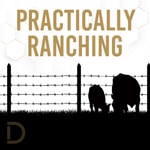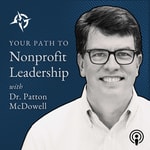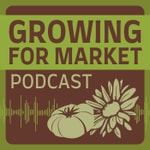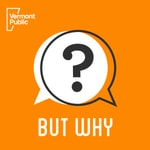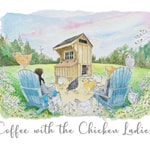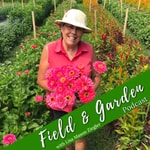Hobby Farms Presents: Growing Good – Details, episodes & analysis
Podcast details
Technical and general information from the podcast's RSS feed.
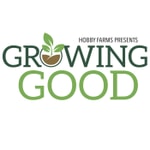
Hobby Farms Presents: Growing Good
Hobby Farms
Frequency: 1 episode/15d. Total Eps: 88

Recent rankings
Latest chart positions across Apple Podcasts and Spotify rankings.
Apple Podcasts
🇺🇸 USA - homeAndGarden
06/07/2025#99🇺🇸 USA - homeAndGarden
26/06/2025#89🇺🇸 USA - homeAndGarden
25/06/2025#96🇨🇦 Canada - homeAndGarden
09/05/2025#95🇨🇦 Canada - homeAndGarden
08/05/2025#75🇨🇦 Canada - homeAndGarden
07/05/2025#53🇨🇦 Canada - homeAndGarden
06/05/2025#40🇬🇧 Great Britain - homeAndGarden
04/05/2025#94🇬🇧 Great Britain - homeAndGarden
03/05/2025#79🇬🇧 Great Britain - homeAndGarden
02/05/2025#59
Spotify
No recent rankings available
Shared links between episodes and podcasts
Links found in episode descriptions and other podcasts that share them.
See all- https://coffeewiththechickenladies.com/
450 shares
- https://podcast.orchardpeople.com/
159 shares
- https://www.inaturalist.org/
136 shares
RSS feed quality and score
Technical evaluation of the podcast's RSS feed quality and structure.
See allScore global : 68%
Publication history
Monthly episode publishing history over the past years.
Episode 85: Lewis Hughes
Season 1 · Episode 85
jeudi 5 septembre 2024 • Duration 34:17
Lewis Hughes, land steward and local-food distribution pro
Hear about Lewis Hughes’s journey into farming, from conventional pig and corn farms to international agricultural research to organic farming and cooperative farming. His vast experience in the farming world set him up to be able to work with small-scale farmers in distributing their products to wider markets.
Learn about the What Chefs Want (formerly called Creation Gardens) food distributor and its local-foods procurement arm, Local Food Connection. Lewis explains how a small-scale grower in Northeast Ohio might typically only be able to distribute their food to a farmers market or local food hub and how What Chefs Want can now help them sell throughout the Midwest and beyond. He talks about the grant funding (USDA Local Food Purchase Assistance, USDA Local Food for Schools and others) that has helped rapidly build capacity and infrastructure in the local food system and positively impact farmers and consumers.
Take Lewis’s best advice for how you, as a small-scale farmer, can make the step from selling at a farmers market to selling to a food hub, with the potential to bring your full-time-farming dream into reality.
Finally, Lewis talks about his new 13-acre property in Michigan and his plans to develop a “micro-farm” that relies on season extension and a focused crop plan.
Links from this episode:
Hobby Farms Presents: Growing Good episode # 67 with Ben Hartman
Episode 84: Nasuha Lenuh
Season 1 · Episode 84
jeudi 22 août 2024 • Duration 33:24
Small-scale farmer and entrepreneur Nasuha Lenuh — nicknamed R — talks about the tree crops grown in her region, the southern part of Thailand. Hear about her family’s tree crops, from rubber to durian fruit, and how R has chosen her own path in developing Rganic Farm, including herbs, salad greens and edible flowers. R shares this journey, being honest about her family’s and community’s feelings about her attempt at growing crops that others just aren’t attempting in this area.
R talks about her elevated raised beds, which she said go together like Legos so she can move them as the durian tree crops around them grow tall. She also talks about her experience as a woman farmer in Thailand and why this profession is important to her.
Based on her experience of growing temperate-climate crops in a tropical climate, R explains a secret of her success: patience in soil building.
Hear about the Young Southeast Asian Leaders Initiative, hosted by the US State Department, which awarded R a fellowship that brought her to the US to study food systems (and then allowed the Hobby Farms Presents: Growing Good host Lisa Munniksma to visit Thailand through a reciprocal fellowship). R explains Kotatuera Basar Kita, the YSEALI project she’s working on now, to develop farmers and bring an American-style farmers market to her community in Yala, Thailand. R and Lisa also talk about what it’s been like to work together on this project both in the U.S. and in Thailand.
Links from this episode:
Episode 75: Michele Thorne
Season 1 · Episode 75
mercredi 10 avril 2024 • Duration 54:34
From Oregon, Michele Thorne talks with show host Lisa Munniksma about support and resources for livestock farmers and meat consumers from The Good Meat Project, the challenges of farming on rented land, the finding value in “failure” and more.
Hear about all the ways that Thorne engages with the food system through what she refers to as “choice, trade and destiny.” She talks all about The Good Meat Project, a nonprofit building pathways toward responsible meat production and consumption for consumers, producers, processors, and food professionals. Learn about how they bridge gaps and break down barriers between all of these stakeholders in the food system and how you as a farmer can plug into the free resources and education the organization offers. Also hear about the Real Burger of Earth Day promotion happening in April each year—bringing together and promoting grassfed-beef producers—and a number of other promotions and learning communities meant to uplift all “good meat” farmers.
Thorne talks about her background in gardening and then keeping livestock, beginning with inheriting ducks and chickens and progressing through just about every type of poultry there is, plus pigs. We cover the ecosystem services animals provide to the land and to the farmer and the value in that over and above the eggs, meat and milk they provide. Thorne talks, too, about how her farming mindset changed after evacuating her property from wildfires with 200 animals in tow. Conversation turns, of course, to land access and the challenges associated with that, as so many farming conversations do.
Thorne gets vulnerable about failure and how we can learn from it — a lesson that endures in farming and elsewhere. She talks about how her experience in farming and her decision to back away from making a living farming helps her in her work with The Good Meat Project now.
Listen to the end to hear about Food Slain, the podcast that Thorne hosted for a few years focusing on food chain issues, from the adulteration of honey to the U.S.’s food-labeling laws. Hear about her thoughts on starting in our backyards to understand and ultimately change the food system for people, animals, the environment and the economy.
Real Burger of Earth Day website
The Good Meat Project website
The Good Meat Project on Instagram
Donate to The Good Meat Project
Episode 74: Hillarie Maddox
Season 1 · Episode 74
lundi 25 mars 2024 • Duration 35:39
Homesteader Hillarie Maddox talks about returning to the land, building community and mental health for farmers.
Hear about Hillarie’s upbringing visiting her family members’ original homesteads in South Dakota and how her life came full circle, back to the land herself on Whidbey Island, in Washington. She talks about how she and her husband are balancing their differing interests in landscaping versus gardening on their property, ultimately arriving at a food forest approach.
Learn about Heavy Nettle Collective, a diverse group of farmers, creatives and healers who are growing food, producing local events and building community together. This group has formed organically and changes in response to the needs of the people coming together — having grown from 5 to 20 — and they are slowly bringing the group into a more formal structure.
While everyone contributes their own strengths to the collective, some of Hillarie’s gifts are facilitating community and wellness. Since launching her wellness experiences through an REI business incubator program, Hillarie has been offering nature immersion, movement and breathwork to reconnect people to themselves and the world around them.
Hillarie offers a thoughtful definition of the concept of community and illustrates how that looks in her own life. Get her best advice for how to actually build the community that so many people talk about wanting.
Black Girl Country Living podcast
Episode 73: Kimberly Haire
Season 1 · Episode 73
mercredi 13 mars 2024 • Duration 29:25
Kimberly Haire talks with Hobby Farms Presents: Growing Good host Lisa Munniksma about what it’s like to teach middle schoolers in Kentucky about growing food while she expands her own farming knowledge.
Hear about how Kimberly uses the foundations of agriculture, local and global food systems, and hands-on work to get sixth-, seventh- and eighth-grade students excited about coming to class. In one of the most tangible examples of demonstrating the impact of agriculture, the lettuce and radishes on the menu for Bullitt Central High School’s scholarship fundraising dinner came from these students’ work. This new program is in its startup stages, with a greenhouse and a new egg incubator, and Kimberly is looking for grants and funding for a larger greenhouse and other infrastructure to continue to grow and improve the program. Listen to how Kimberly has tapped into community resources, like the county 4-H program and local farms and agritourism locations, to still provide experiences and opportunities for the students that their small budget can’t provide.
Kimberly talks about her personal interest and experience in producing food, why this work is important to her, and what it was like to transition from her career as an English teacher into agriculture as part of the school system’s unified arts curriculum. Keep listening to get Kimberly’s advice for capturing middle-school students’ interest in food and farming, using their limited attention spans to your advantage.
At the end of the episode, Kimberly describes an incredible meal straight from her garden, and Lisa talks about her favorite farm meal, as well.
Bullitt Lick Middle School Facebook page
Hobby Farms Presents: Growing Good podcast episode with Michelle Howell
Episode 72: Sara Martin
Season 1 · Episode 72
vendredi 1 mars 2024 • Duration 39:41
Appalachian farmer Sara Martin asks us to put on our science hats and talks about farming at high elevation, running a truly diverse small farm, redistributing unsold produce and more.
Hear about how Sara and her husband, Dustin Cornelison, became “accidental farmers,” as their homesteading endeavor just kept growing. Sara talks about how their Two Trees Farm and Sustainabillies business support their family and their community. With 3/4 acre in production, they’ve learned to grow vertically and construct multi-use structures to make the most of their small farm. Sara explains how her background in ecology, rather than agriculture, has shaped her farming experience. Learn about the ecological growing efforts they use to make this challenging property into a productive piece of land.
Sara says when people ask them what they do, their first reaction is, “Putting out fires.” From growing plant starts and diverse vegetable production to using the plentiful shady areas on the farm for growing mushrooms and teaching classes, plus 70+ pastured laying hens, growing 70% of their own food and keeping a blacksmith shop, there’s no shortage of work to be done at Two Trees Farm. Learn about their wasabi-growing experiment and the mobile greenhouse that Dustin built on the back of their pickup truck. Let Sara take you back to science class as she reminds us about how to use the scientific method to make informed decisions on the farm.
Also get to know the community work that Sara does, including with the Appalachian Sustainable Agriculture Project and the local Cooperative Extension advisory board. Sara and Dustin manage Haywood’s Historic Farmers Market and have worked with their team to secure grants to pay farmers for their unsold produce and redistribute it to hunger-relief organizations. “There’s no such thing as a bad day at our farmers market anymore for our vendors,” Sara says.
Episode 71: Holly Callahan-Kasmala and Chrisie DiCarlo, co-hosts of the Coffee with the Chicken Ladies podcast
Season 1 · Episode 71
mercredi 14 février 2024 • Duration 39:06
The Hobby Farms Presents: Growing Good podcast meets the Coffee with the Chicken Ladies podcast with this episode’s guests, Holly Callahan-Kasmala and Chrisie DiCarlo.
Learn about how these best friends of 40+ years started the Coffee with the Chicken Ladies podcast and why it’s important to them to share their experience with and educate others about poultry.
Listen to the impressive list of heritage chicken breeds Holly and Chrisie keep on their farms and why. Also, they try to answer the question, “Why chickens?” We talk about what to do with all these eggs—with more than 60 chickens between them—and the difference between backyard eggs and industrial eggs. Learn about the greens and herbs that Holly and Chrisie grow for their chickens, including a collards variety with an appropriate name for feeding to poultry.
Hear about Holly’s and Chrisie’s own farms, including why they took a 17-hour road trip in the pursuit of heritage breeds. Holly explains how she chose the location for the poultry runs, sheep fields and gardens on her farm. She tells us about her fiber arts and why it’s important for her to grow cotton and keep wool sheep now. Chrisie explains that her experience with emergency veterinary care began with a toy doctor’s kit that she used to “take care of” all the neighborhood dogs as a kid and continued on into her career. She tells us about her 3 acres and what it was like to get started with just four chickens as a means of teaching her daughters about the responsibility and care of animals.
Listen to the end for Holly’s and Chrisie’s favorite egg-based dishes!
Coffee with the Chicken Ladies podcast website
Episode 70: Anu Rangarajan, Cornell Small Farms Program director, talks about supporting farmers, a reduced-tillage technique and more!
Episode 70
mercredi 31 janvier 2024 • Duration 40:54
Cornell Small Farms Program director Anu Rangarajan talks about supporting farmers as whole people, making farming communities more welcoming spaces, life as a strawberry farmer and a game-changing reduced-tillage technique.
Hear about how the Cornell University Small Farms Program free classes and resources can support your farming—whether your farm in New York or elsewhere—and how they differ from and work in conjunction with Cooperative Extension resources. Anu emphasizes the importance of building networks and utilizing local knowledge in building farms that are socially sustainable as well as sustainable in every other sense of the word. Learn about the Reconnecting with Purpose, Be Well Farming Project and other programs meant to support farmers as whole people and farms as whole systems. (If the concept of “listening like a cow” intrigues you, this is an episode for you.)
This episode is recorded just a week after the first Northeast Latino/a/x Agricultural Community Conference, and Anu asks the question, How is it that we welcome and create a sense of safety for people who are not from traditional white farmer audiences? As a woman of color working in production agriculture for a couple of decades, this is a question that’s been on her mind. Anu explains how the Cornell Small Farms Program is working on answers to the question from supporting farmworkers to cultivating pathways to farming.
Get to know how Anu went from being a kid in Detroit to a premed student to a greenhouse employee to a vegetable specialist at a land-grant university. She talks about her organic U-pick strawberry farm—her experience “on the other side” of the research-production relationship. Learn about Anu’s research in small-scale vegetable production, minimum- and no-till system, and soil health. Keep listening for great info about using tarps in the garden to increase nutrient levels, reduce weed populations and more.
Cornell Small Farms Program website
Futuro en Ag Latinx farmers program
Episode 69: Chyka Okarter on practicing lean farming, creative financing and more!
Season 1 · Episode 69
mercredi 3 janvier 2024 • Duration 33:38
Chyka Okarter talks about farming an Extension work in Nigeria, putting the lean farming concept into practice, and finding creative financing from within the food system.
Hear about what agriculture looks like in Nigeria—a pursuit with huge potential that Chyka feels is not being met in this country that’s slightly larger than Texas. He talks about growing up in a farming family and wanting to go into agriculture to help farmers work more efficiently.
Learn about the Feed the Future Program, USAID, and Winrock International’s work in bridging the gap between Extension and small-scale farmers where there is one Extension agent to 10,000 farmers. Chyka’s work is to train the trainers working with micro, small and medium enterprise (MSME) cohorts to implement the lean principles in farm business approach. They wanted to try using the lean approach rather than the traditional Good Agronomic Practices approach, which can lead to information overload. Hear two examples—in aquaculture and in crop production—of how the six steps of the lean approach have led to big wins for farmers and the whole food chain. (Spoiler alert: One discovery changed the catfish mortality rate from 50%+ to 0% with this approach, and another is leading farmers to more precise organic fertilizer use.)
Finally, listen in on how farmers in Nigeria—a country in economic crisis—are working within the food system for an innovative financing model involving input credits.
Learn more about Chyka Okarter’s work:
Episode 68: Keisha Johnson talks career transitions, skill sharing, poultry keeping and more
Season 1 · Episode 68
mercredi 20 décembre 2023 • Duration 39:31
Texas farmer Keisha Johnson talks career transitions, skill sharing, poultry keeping and more.
Hear about Keisha’s career transition from administration and logistics to farming, and her advice for how anyone can take pre-farming-career skills into farm life—”turning your lifestyle into your livelihood.” Keisha talks about growing vegetables in Texas’s hot, arid climate through summer and more mild winter weather, plus her volunteer-potato-growing experiment. (Listen in for her prediction for this winter’s weather!)
Learn about Keisha’s White Broad Breasted turkey breeding—a rare thing for this breed to be able to naturally reproduce. She talks, too, about the realities of keeping poultry, including predator pressure.
Hear also about the Texas Organic Farmers and Gardeners Association and their conference happening at the end of January 2024. Keisha talks about getting involved as a first-year board member and the new skill-sharing and job board they’re working on getting off the ground.
At the very end, Keisha shares her favorite farm meal, sharing a beloved family recipe.

